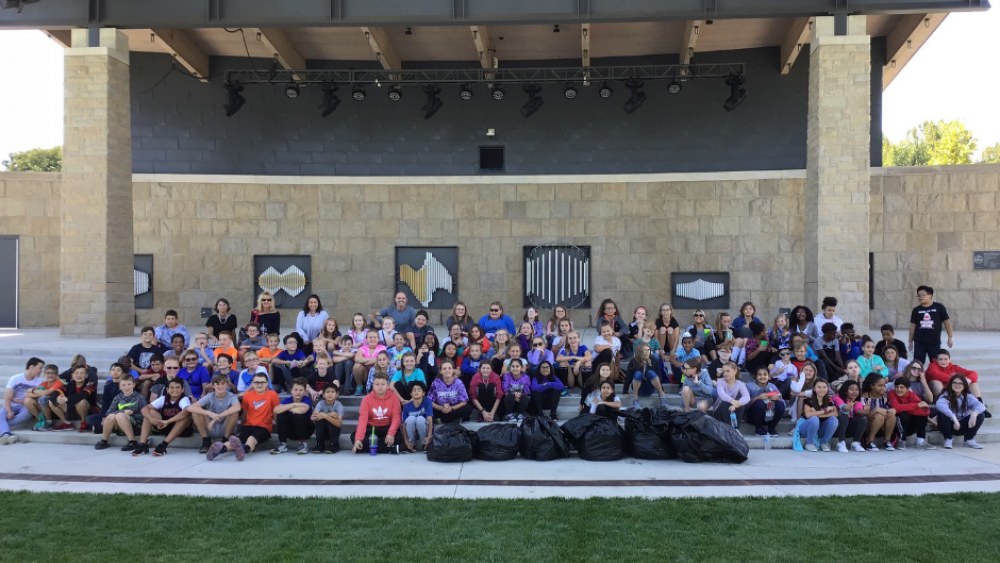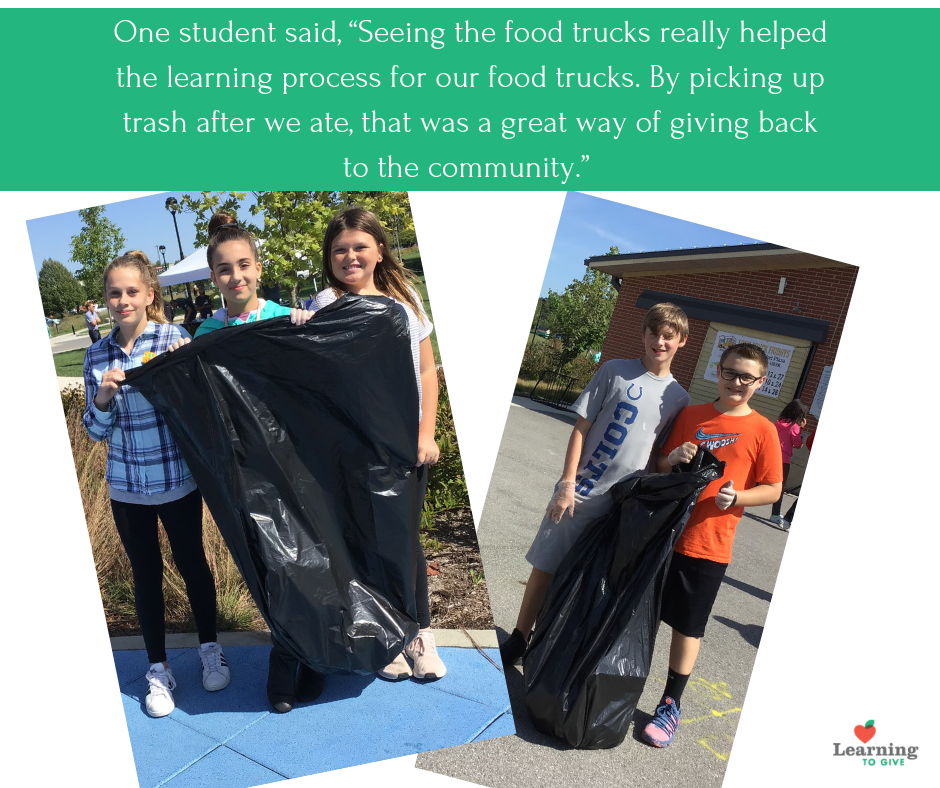Ms. Seville, an intermediate teacher from Fishers, Indiana said, “In the past few years, I have noticed more of my students isolating themselves and have fewer face-to-face social skills. I believe students should recognize service as a human choice, not to be rewarded but because it is the right and just thing to do.”
Just under one hundred 6th grade students participated in the mini-grant supported project, Connecting Our Community through Cuisine. After incorporating the lesson What is Service Learning? in each of her four classroom rotations, students discussed the concept of philanthropy and its importance in our daily lives. Students also completed the Blue Sky activity, and their ideas were displayed in the classroom as reminders of the great things we all want and can do to make the world a better place.
This project connected to the students’ PBL comprehension during a Food Truck Friday. When the students finished enjoying their lunch, they helped the Parks Department service citizens by helping parents with young children, the elderly, and collecting trash. As part of the assignment, students were tasked with designing proposals for their own Food Trucks.
“I was proud to see my students offer mothers with young children and older residents a place in front of themselves,” said Ms. Seville. Students participated in small teams and many worked with new partners. Team leaders were assigned and organized the service project, making sure the group members had the proper materials and directions. “The Parks Department, Food Truck Vendors, and private citizens were quick to complement our students.”
A student said, “I think the food truck project was interesting and fun. It was interesting because you got to make pictures of food. Second you got to make a cardboard model of your truck. It made me feel good to pick up trash for the community which I helped.”
For Ms. Seville, her students were able to actively participate in a community food truck event. On a normal day, many of the students would have had difficulty purchasing their food. Everyone made his/her own food choice, and many experimented with foods from other ethnic groups. By servicing community residents, students became aware that even at a young age they can make a positive impact on the lives of others.

